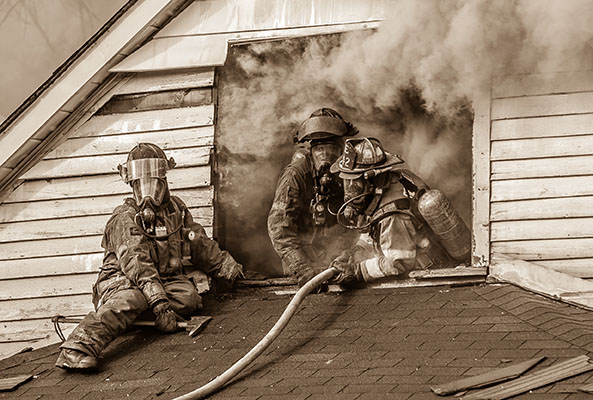President Joe Biden is expected to sign the First Responders Fair RETIRE Act after the Senate unanimously passed the legislation Nov. 17. The new law will protect federal fire fighter retirement benefits in case of debilitating injury or illness.
“Our job is dangerous, and the risk of injury is high. Providing federal fire fighters with access to their full retirement benefits if they’re injured on duty is right and fair,” said General President Edward Kelly. “Fire fighters deserve a dignified retirement, and that’s why we have long advocated for this legislation. The IAFF is grateful to Senators Jon Tester and Susan Collins and Representative Gerald Connolly for everything they have done to support this legislation and our federal fire fighters.”
Federal fire fighters and law enforcement officers are classified as 6c employees, making them eligible for the Federal Employee Retirement System’s Special (FERS-Special) plan. The FERS-Special plan is an accelerated retirement system that allows for early retirement (age 57) but requires 20 years of service.
Until the passage of this legislation, fire fighters injured at work and unable to complete 20 years of service would automatically be moved from the FERS-Special plan to the regular plan, losing up to 14% of their retirement annuity and the ability to retire early.
The First Responders Fair RETIRE Act allows fire fighters suffering from a career-ending occupational injury or illness to remain in the FERS-Special plan and retire early after transitioning to any other federal position they are qualified to perform.
“I introduced this bipartisan legislation to make sure the folks who put themselves in harm’s way are made whole and are able to access the enhanced retirement benefits they’ve earned through years of selfless service,” said Tester, a Montana Democrat.
“These brave men and women make countless sacrifices to protect our communities, and their strenuous and often dangerous occupation puts them at an increased risk of injury,” said Collins, a Republican from Maine. “I am pleased that the Senate and House have passed our bipartisan bill, which will ensure that first responders do not lose the retirement benefits they have earned should they be injured in the line of duty.”
Democratic Rep. Connolly of Virginia, who introduced the House legislation, agreed.
“We have a responsibility to uphold our promise to those that are injured on the job and ensure their first responders’ benefits are fully protected,” he said. “They shouldn’t be penalized, especially when they are still committed to public service.”
Federal fire fighters have seen several successes under the Biden administration and current Congress, including:
-
- Legislation providing up to 12 weeks of paid parental leave for new parents upon the birth or adoption of a child.
- Legislation for two weeks of paid parental bereavement leave upon the death of a child.
- Legislation directing the Navy Region Mid-Atlantic (NRMA), which includes more than 400 IAFF federal fire fighters, to implement an Alternative Work Schedule (AWS) – eliminating the perpetual and arduous 24 on / 24 off work schedule.
- Legislation directing the Department of Defense to perform a test for PFAS levels in the blood of federal fire fighters. The employer-provided test results may be used to demonstrate a causal link between certain illnesses and occupational exposure to toxic PFAS-laden firefighting foams.
- The Department of Labor’s Office of Workers Compensation Program centralized all fire fighter injury and illness claims into one office to eliminate many bureaucratic impediment and inconsistencies faced by members. Claims are now turned around quickly, with 90% in the fire fighter’s favor.



